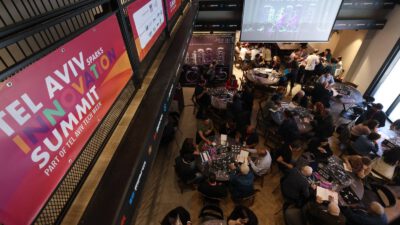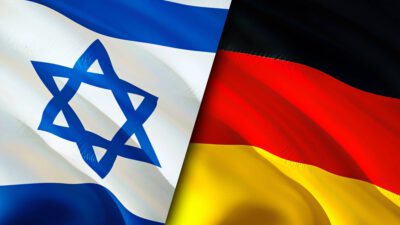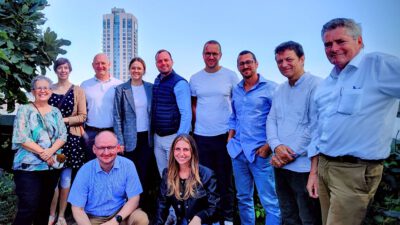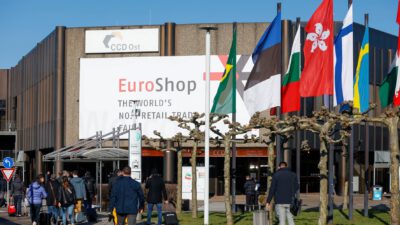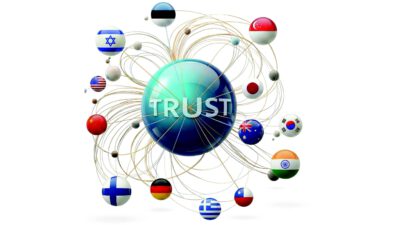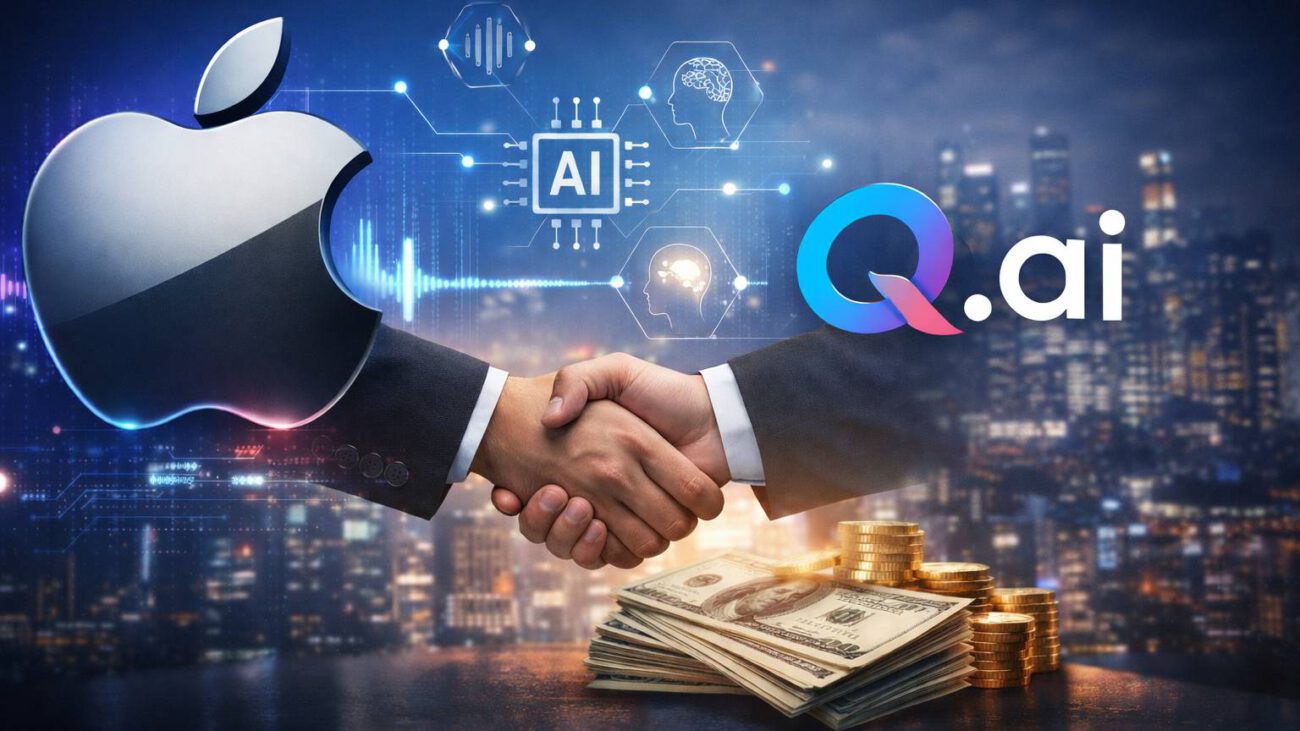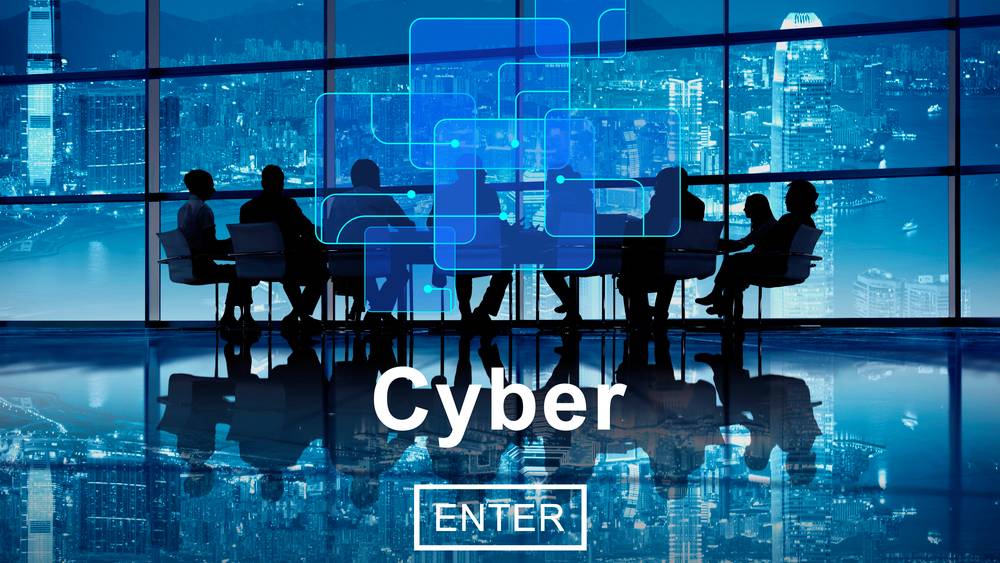“Despite the challenges, Israel is in a good position in emerging technologies”
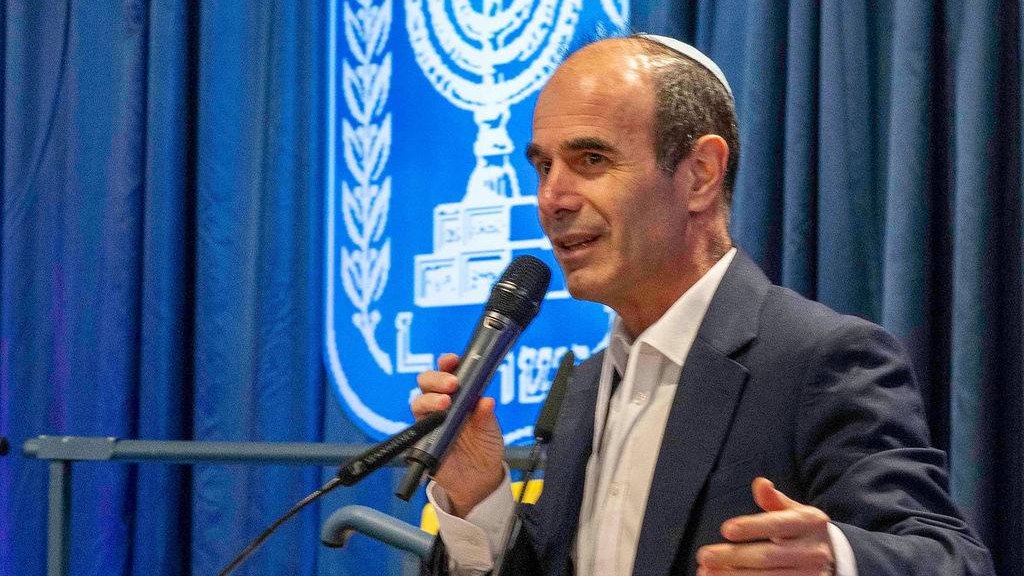
- How do you define “emerging technologies,” and which fields are included in this definition?
“The term emerging technologies refers to innovative and disruptive technologies that are in development and have the potential to significantly transform our lives, economies, and societies. A central example is artificial intelligence, which enables large-scale processing and creates new applications across all sectors – healthcare, education, industry, agriculture, computing, and more.
“In addition, there are other emerging areas such as quantum computing, which allows complex calculations at incredible speeds, and bio-convergence – the combination of computing and biology. These connect with processes such as nanorobotics, 3D printing, and personalized medicine. These are innovative, breakthrough technologies with far-reaching implications for every aspect of life”.
- What is the meaning of the role “Coordinator for Emerging Technologies” at the Ministry of Foreign Affairs, and what are your main areas of responsibility?
“The position involves coordinating policy. At the Ministry of Foreign Affairs, we don’t deal with the technologies themselves, but rather with their international aspects – regulation, norms, international agreements, promoting global partnerships, cooperation with governments, knowledge exchange, and connecting experts.
“For example, there is currently a great deal of international dialogue around AI – meetings, conventions, and new frameworks. The reason is that there are also concerns and challenges around these technologies. For instance, Israel signed the Council of Europe Convention on Artificial Intelligence, which regulates responsible uses of AI. Signing such a convention is a significant move.
“In the EU, regulation is broad and horizontal across the entire AI domain, while in Israel it is more thematic – based on each sector – to allow innovation to continue developing without creating too many barriers, while still ensuring responsibility and safety. We want to maintain our leadership in AI, safeguard our national interests, and influence global processes so that they also align with our norms, regulation, and national approach.
“As part of my role, I work closely with the Ministry of Innovation, Science and Technology, with other government ministries, the Israel Innovation Authority, the Telem Forum, academia, and the private sector. Recently, we hosted an inter-ministerial meeting that focused on international aspects of AI, discussing issues of supervision, privacy, bias, and opportunities in the field”.
Emerging Technologies. depositphotos
- Is this a new position at the ministry? Is it an Israeli initiative or part of an international trend?
“The position has existed for about a year and a half, and I’m the second to hold it, after Hagit Ben-Yaakov, who paved the way. It’s an innovative Israeli initiative that fits within a broader international trend. Some countries have appointed similar coordinators, but Israel was among the first to do so.
“The Ministry of Foreign Affairs brings a diplomatic and political perspective and the ability to understand global processes. We also bring the international language, the approach, and our worldwide network of embassies and representatives, which provides valuable connections and personal relationships.
“The first year focused on building trust, clarifying what the ministry contributes, and establishing our positioning. Now we are in a phase of promoting international activities – participating in conferences, drafting policy papers, and representing Israel in global forums together with our professional partners in Israel.
“For example, next year a major summit will take place in India, where it’s important that Israel has a strong presence. I must emphasize that while we bring the international dimension, it is crucial to attend such events alongside the professional experts. This work must be collaborative”.
- Israel is considered a global leader in innovation. Where do you see the main opportunities for the Ministry of Foreign Affairs?
“Currently, mainly in AI-related issues, where gaps between countries are vast. The world is influenced by the competition between China and the United States, and Israel must be present in that dialogue – cooperating with other government ministries and positioning itself as an influential player in the international arena. We need to identify trends and protect Israeli interests. How exactly to do that? That’s the essence of diplomatic work combined with professional expertise”.
- To what extent are emerging technologies integrated into Israel’s foreign policy?
“Foreign policy is led by the Ministry of Foreign Affairs. We understand which countries are natural partners and which are not. Our embassies around the world help us identify opportunities for cooperation and connect Israeli experts to international forums. They assist in everything – from establishing professional contacts to organizing logistics for meetings. These personal connections are essential because, after all, we are all human beings, not machines.
“Recently, the National AI Directorate was established in the Prime Minister’s Office, headed by Brigadier General (res.) Erez Askal. This coordinating body demonstrates the government’s recognition of the importance of AI – a significant step that shows the world Israel views AI as a strategic domain”.
- How does this translate into practice? How does the ministry promote the global spread of Israeli technological initiatives?
“We work on inter-ministerial coordination, meetings with partners, and participation in international forums – whether at the OECD, the UN, in India, or elsewhere. The goal is to represent Israel professionally and responsibly, strengthen trust with partners, and ensure Israel’s voice is heard and its interests protected.
“We also bring Israeli speakers to leading conferences and create collaborations between Israel and other countries that can open opportunities for Israeli companies.
“Our representatives abroad are doing an outstanding job – they show leadership and professionalism in a field so new that few others can match them.
“It is also important to note the diplomatic opportunity here: we are shifting the conversation toward assets. Suddenly, countries want to learn from us and hear what we have to say. This moves us away from being perceived solely through the prism of conflict or Gaza, toward a conversation in which others seek our expertise and innovation. That’s a meaningful diplomatic achievement that goes beyond image”.
- In your previous position as Israel’s ambassador to the Philippines, what insights did you bring to your current role?
“After more than three decades in diplomatic service, I consider myself an experienced diplomat. This experience teaches patience, depth, and understanding of complex, slow-moving international processes. At the same time, it taught me to value what Israel brings to the table – that despite its size and distance, it makes a significant contribution to the global conversation. Israel truly has much to offer the world; we shouldn’t limit ourselves only to political discussions.
“Diplomatic success can come from creating value through technology. That is what I focused on in the Philippines – bringing Israeli companies and technologies, creating introductions and collaborations between Israeli and Filipino firms. Israeli companies bring technology, creativity, and out-of-the-box thinking. Bringing solutions to a developing country is both meaningful and inspiring. New partnerships were formed – business collaborations and long-term commercial ties – that benefited both the Israeli and Filipino economies”.
- How do you view Israel’s role in the global race for emerging technologies?
“There are various indexes ranking Israel higher or lower depending on the parameters. In practice, Israel has a lot to offer – innovation, a unique ecosystem, startups, and high-quality human capital, even if we still lack enough experts. We need to invest more in workforce training, computing power, and energy infrastructure. But overall, Israel is in a strong position compared to most of the world.
“We must not rest on our laurels – we need to plan, invest, and evolve – but we’re doing well. The establishment of the new National AI Directorate is another step that consolidates our leadership and will help further develop the field in Israel”.
- What are the main challenges you identify today?
“The main challenges are maintaining balanced regulation, allocating sufficient budgets, long-term planning for human resources, computing power, and energy supply, as well as deepening cooperation within Israel and with the world. We are investing – but not enough. The good news is that the private sector recognizes Israel’s potential. Global companies are opening R&D centers here in AI and other emerging technologies – a strong vote of confidence in our capabilities”.
- Finally, if you had to choose one technology that will change the global balance of power in the next decade – which would it be?
“Artificial intelligence is already changing the world. Next, in the coming decade, I believe quantum computing will be the next breakthrough”.
Ilan Fluss – On a Personal Note
Family status: Married to Gila, father of four.
Education: B.A. in Psychology and Israel Studies, M.B.A. in Business Administration.
Professional experience: Over 31 years at the Ministry of Foreign Affairs. Served as Deputy Ambassador to the Philippines, Cultural Attaché and Spokesperson in The Hague, Advisor to the Israeli Mission to the UN, Head of Israel’s secret mission in Bahrain, and Ambassador to the Philippines. At headquarters, he served as Head of MASHAV and as Head of the Economic Affairs Division.
Hobbies: Running, hiking, and diving.
Life motto: A sense of mission and national pride.
One more thing: “I am a man of faith. My belief is part of my sense of mission. I think a good Israeli diplomat should have a strong sense of purpose – and besides, I don’t like chocolate”.
This content might interest you as well
More Categories
Related Posts
US chip and AI infrastructure company Astera Labs has announced a strategic expansion of its global engineering footprint with the
Apple has recently announced the acquisition of the Israeli AI startup Q.ai, which specializes in artificial intelligence technologies for speech
Israel stands at a critical decision point in the global quantum race. Choices made in the coming years will determine
The Israeli cybersecurity industry has wrapped up an exceptional year with unprecedented figures: total exit value in 2025 reached approximately







